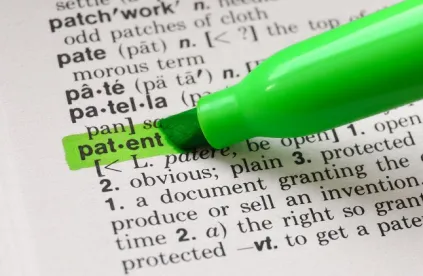In Phytelligence, Inc. v. Washington State University, the Federal Circuit held that the agreement terms at issue constituted “an unenforceable agreement to agree” that did not convey the license rights at issue. While decided under state law, this decision highlights the potential unenforceability of options clauses that do not specify sufficient terms of the option that may be exercised.
The Agreement At Issue
The agreement at issue was a “Propagation Agreement” that gave Phytelligence the right to propagate “WA 38” apple trees, which the Federal Circuit opinion describes as “a new apple cultivar that WSU developed and patented.” The dispute focused on Section 4 of the agreement, and whether it gave Phytelligence the right to sell WA 38 trees, or whether it was a mere agreement to agree to a future license to do so.
The Federal Circuit opinion paraphrases Section 4 as follows:
If [Phytelligence] is an authorized provider in good standing … by signing this Agreement, [Phytelligence] is hereby granted an option to participate as a provider and/or seller of Plant Materials listed in Exhibit A, if the Cultivar is officially released by WSU and becomes available for licensing by [WSU] …. [Phytelligence] will need to sign a separate contract with [WSU], or an agent of [WSU], to exercise this option.
The District Court Decision
The litigation before the court arose after WSU terminated the Propagation Agreement on the basis that “Phytelligence materially breached section 1.b of the Propagation Agreement when it sold and delivered WA 38 to a third-party without a license to do so.” In response, Phytelligence sued WSU in Washington state court alleging WSU breached Section 4 by granting another entity an exclusive license to manage commercialization of WA 38. After WSU asserted patent and trademark infringement counterclaims the action was removed to federal district court.
The district court granted WSU’s motion for summary judgment, agreeing that Section 4 was an unenforceable “agreement to agree”.
The Federal Circuit Decision
The Federal Circuit decision was authored by Judge Reyna and joined by Chief Judge Prost and Jude Stoll.
As noted in the Federal Circuit decision, the parties agreed that the contract interpretation issues were governed by Washington state law. The court explained that “Washington courts follow the ‘objective manifestation theory’ of contract interpretation, which requires a court to look to the reasonable meaning of the contract language to determine the parties’ intent.” Important to the dispute at hand, under Washington state law, “[a]n agreement to agree is an agreement to do something which requires a further meeting of the minds of the parties and without which it would not be complete. Agreements to agree are unenforceable in Washington.”
Applying these principles, and analogizing to Washington state court decisions, the Federal Circuit came to the same conclusion as the district court:
Here, Section 4 of the Propagation Agreement provides that Phytelligence is “hereby granted an option,” but that Phytelligence “will need to sign a separate contract with [WSU], or an agent of [WSU], to exercise this option.” …. Thus, the plain terms of the agreement provide that Phytelligence’s option turns on a future contract between the parties, and thus “a further meeting of the minds of the parties” is required before Phytelligence can commercialize WA 38. …. This renders Section 4 an unenforceable agreement to agree.
Phytelligence also argued that extrinsic evidence supported its position, under several different theories. Without clearly concluding that extrinsic evidence could be relied upon under these circumstances, the Federal Circuit reviewed the evidence cited by Phytelligence and concluded it did not support a finding that Section 4 created an enforceable contractual obligation for WSU to grant Phytelligence a license to sell WA 38 apples.




 />i
/>i
